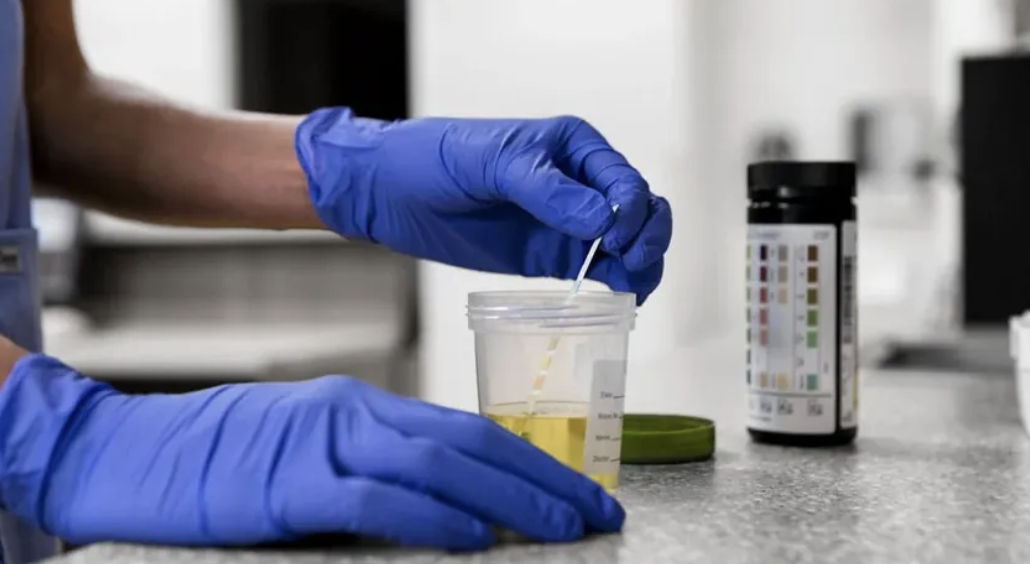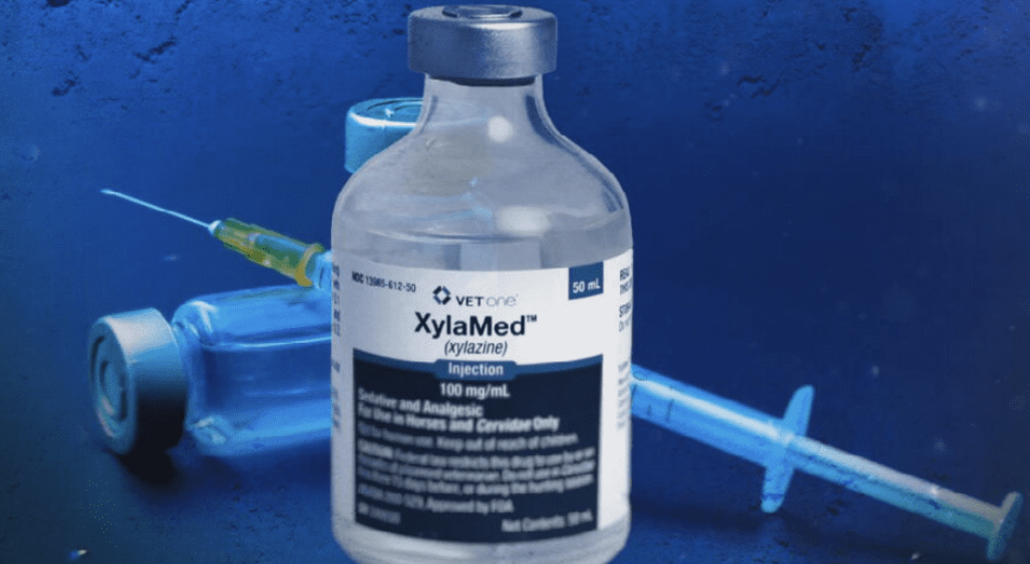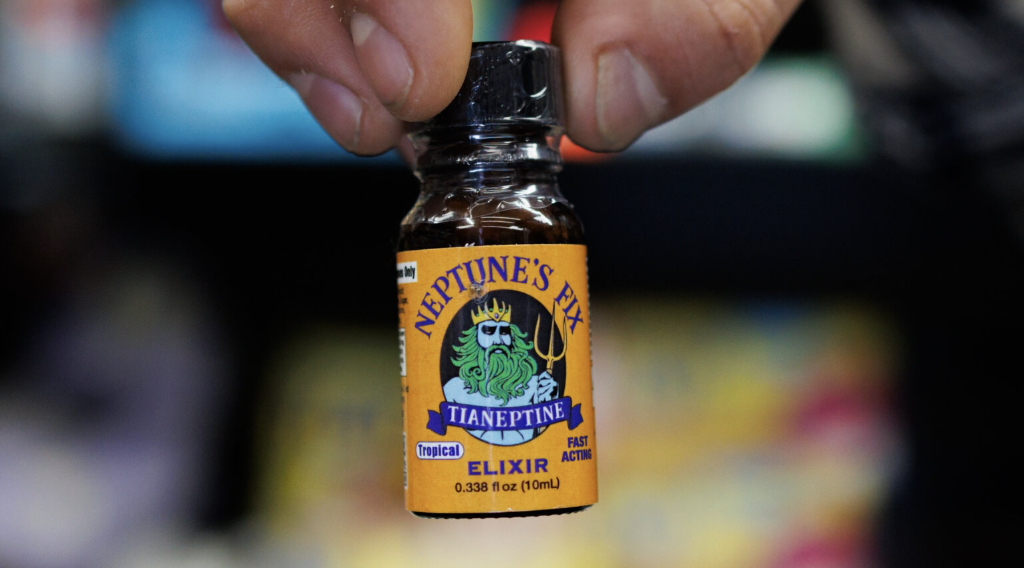Narcotics Anonymous is a nonprofit community made up of people who have faced serious challenges with drug use. Using a 12-step model, it supports those with various substance use issues and stands as the second-largest 12-step group after Alcoholics Anonymous, which established the original 12-step method.
The 12 steps within Narcotics Anonymous involve key concepts such as acknowledging a lack of control over addiction, repairing relationships through amends, engaging in personal evaluation, and striving for spiritual growth. These principles serve as a roadmap for members as they pursue recovery and self-improvement.
Narcotics Anonymous meetings offer a confidential and encouraging setting for individuals to share their stories and support each other through recovery. Sessions often feature readings, open discussions, or personal sharing, highlighting the importance of privacy, respect, and welcoming all who seek help. Participation is free and offered to anyone motivated to stop using drugs.
Narcotics Anonymous proves effective by creating a peer-supported environment that aids individuals dealing with substance use challenges. Through its 12-step approach and focus on collective support, it successfully assists members in reaching and sustaining long-term recovery goals.
What is Narcotics Anonymous (NA)?
Narcotics Anonymous (NA) is a nonprofit, community-driven organization that supports individuals aiming to recover from drug addiction. It is made up of independent groups consisting of two or more recovering individuals who gather regularly to help each other pursue and maintain a life free from drugs. All groups share a commitment to the Twelve Steps and Twelve Traditions of NA, which serve as guiding principles for both personal recovery and group cohesion. Internationally, NA ranks as the second-largest organization based on the 12-step recovery model.
The research paper “The program is perfect: Narcotics Anonymous and the managing of the American addict” by Paul Christensen, published in Medicine Anthropology Theory in 2017, describes NA as a free program offering an extensive support network that extends beyond individual efforts. NA has empowered countless people struggling with drug dependency, including those with opioid addiction, and contributed significantly to their recovery and stability. It is widely viewed as a highly respected recovery organization that has made a profound positive impact on individuals who might otherwise be overlooked.

What is the history of Narcotics Anonymous?
Narcotics Anonymous originated in the mid-20th century, drawing influence from the 12-step recovery model developed by Alcoholics Anonymous (AA). The foundations for adapting AA’s approach to address drug addiction can be traced to the United States Narcotic Farm, where mutual aid groups like Addicts Anonymous supported individuals working toward recovery.
The research article “The History of Narcotics Anonymous” by Collins E. Lewis, published in the Journal of Addiction Medicine and Therapy in 2017, notes that the development of Narcotics Anonymous (NA) started in New York City, with the first local group forming in 1949 under the leadership of Danny C.
In Los Angeles, NA’s roots were established in 1951 when Betty T., a nurse in recovery, organized “Habit Forming Drugs” gatherings at her residence. These sessions initially aimed to assist AA members who faced challenges with substances other than alcohol. In 1953, Jimmy K., motivated by his experience in recovery and concerns over the limitations in existing groups, started an NA group with five others in Van Nuys, California. They adopted a broader perspective, viewing “addiction” as an illness instead of focusing on specific substances. This inclusive philosophy transformed NA into a supportive community for anyone facing addiction, including individuals dealing with fentanyl addiction, regardless of the substance involved.
Despite initial obstacles such as leadership disputes and public resistance, NA found stability and began expanding rapidly in the 1970s. The release of its Basic Text in 1983 helped define its core principles and supported further growth internationally. Currently, NA exists in more than 130 countries, providing support and recovery resources to millions affected by addiction.
Who is Narcotics Anonymous designed to support?
Narcotics Anonymous is designed to support individuals struggling with drug addiction, regardless of age, gender, race, sexual orientation, belief system, or the specific substances involved. Its core mission is to help people achieve and sustain recovery through shared experiences and peer support.
The organization prioritizes inclusivity, offering a welcoming and safe environment where both newcomers and long-time members can connect with others who understand the realities of addiction. Personal storytelling is central to the NA approach, fostering empathy, mutual understanding, and encouragement among participants.
According to an article titled “The Alcoholic/Narcotic Anonymous Program Outcome: A Meta-Analysis Study” by Adriana Wicaksono, last revised in 2023, individuals who actively participate in NA and similar programs experience significant improvements in recovery outcomes. The study highlights that structured peer support groups, particularly those based on the 12-step model, are effective in reducing relapse rates and improving long-term sobriety, especially when participation is consistent.
Regular meeting attendance strengthens members’ sense of connection and accountability, helping them reduce cravings, rebuild trust, and commit to a healthier and more stable life.
How big is the Narcotics Anonymous community?
As of 2024, Narcotics Anonymous (NA) operates approximately 76,000 weekly meetings across 143 countries, making it one of the largest peer-support communities for people recovering from substance use disorders. This extensive global presence reflects the growing demand for inclusive, nonjudgmental recovery support. A demographic survey conducted in 2023 reported that 54.3% of NA members identify as male, 42.2% as female, and 1.3% as non-binary. These figures highlight NA's broad appeal across gender identities and its commitment to providing support for all individuals seeking recovery.

What are the 12 steps of Narcotics Anonymous?
The 12 steps of Narcotics Anonymous are outlined as follows:
- Admit powerlessness: Acknowledge that addiction has rendered life uncontrollable.
- Believe in a higher power: Trust that a force greater than oneself can support recovery.
- Surrender control: Rely on this higher power for direction and strength.
- Self-reflection: Conduct an honest evaluation of personal actions and character.
- Confession: Disclose your wrongdoings to yourself, your higher power, and another individual.
- Readiness for change: Be willing to release negative behaviors and traits.
- Seek help: Ask your higher power to remove personal shortcomings.
- Make a list of amends: Note those you have hurt through your actions.
- Make amends: Attempt to make things right and restore relationships when feasible.
- Self-assessment: Maintain ongoing self-examination and promptly acknowledge errors.
- Spiritual growth: Deepen the relationship with your higher power through prayer and meditation.
- Give back: Support others in their recovery journey and practice these values in daily life.
According to the article titled “Efficacy of Group Therapy Based on 12-Step Approach of Narcotics Anonymous on Self-Control and Quality of Life in People With Substance Use Disorder Diagnosis During Recovery” by Sayed Mostafa Abdollahi and Sayed Abbas Haghayegh, last revised in 2020, the 12-step approach used by NA significantly improves self-control and overall quality of life in individuals recovering from substance use disorders. The study supports the clinical value of 12-step programs, particularly when members actively engage in the process and attend regular meetings.
Is Narcotics Anonymous based on religion?
No, Narcotics Anonymous is not a religious organization. As outlined in the “Narcotics Anonymous, Fifth Edition” published by Narcotics Anonymous World Services, Inc. Chatsworth, California in 1988, NA is open to people of all backgrounds and beliefs. Although NA includes spiritual elements, such as encouraging members to develop a relationship with a higher power, this idea is deliberately flexible and left to each person’s personal understanding. NA does not advocate for any particular faith or deity, enabling members to interpret spirituality according to their own perspectives.
NA maintains a neutral stance regarding religious matters, honoring every member’s autonomy in defining their own spirituality. This approach ensures the focus of the program remains on recovery rather than religious practice.
How can someone get involved with Narcotics Anonymous?
An individual becomes part of Narcotics Anonymous (NA) by simply attending a meeting, there are no fees, paperwork, or formal requirements. Information about local and online meetings is available on the official NA website and through regional helplines. Anyone who has the desire to stop using drugs is welcome, regardless of their current stage in recovery.
NA provides a confidential, supportive environment where individuals can share their experiences and begin to build a community grounded in mutual understanding. Actively participating in meetings, forming connections with fellow members, and engaging with NA’s 12-step program are key actions for initiating and sustaining recovery.
According to the article titled “The Exploration of Factors Related to Treatment Retention in Narcotics Anonymous” by Neda Jalali and Seyed Saeed Mazloomy Mahmoodabad, last revised in 2019, factors such as group cohesion, spiritual growth, and social support play a critical role in improving treatment retention and long-term recovery outcomes within NA. These elements are cultivated through consistent involvement in meetings, which reinforces commitment and personal growth throughout the recovery process.

What does a Narcotics Anonymous sponsor do?
A Narcotics Anonymous sponsor is a fellow member who is generally accessible to their sponsee, offering support, guidance, and someone to talk to when challenges or questions come up during recovery. Over time, this connection often develops into a meaningful friendship.
Sponsors assist members in navigating the 12-step process, delivering honest and unbiased feedback that may be hard to obtain independently. Although not trained professionals, their firsthand experience with addiction builds a foundation of empathy and understanding, creating a nurturing environment that supports recovery.
Is sobriety required to attend Narcotics Anonymous?
No, being drug-free is not a requirement to attend Narcotics Anonymous (NA). NA is open to anyone who wants to stop using drugs, regardless of whether they are currently using. Many individuals begin attending meetings while still struggling with substance use. Although some meetings may request that those actively using abstain from speaking during the session, they are still encouraged to reach out to members before or after the meeting for support and guidance.
Can non-alcoholic people attend Narcotics Anonymous?
Yes, non-alcoholic individuals can attend Narcotics Anonymous (NA) if they are struggling with drug addiction or have a desire to stop using any mind-altering substances. Unlike Alcoholics Anonymous (AA), which focuses specifically on alcohol use, NA is designed to support individuals dealing with addiction to any substance, whether prescription drugs, illegal narcotics, or multiple substances.
NA does not require members to identify with a specific type of addiction. This makes it especially supportive for people navigating polysubstance abuse, where multiple substances are involved. Instead, it takes a more inclusive approach by addressing the disease of addiction itself, regardless of the substance involved. This means someone who has never had issues with alcohol but is dealing with drug dependency can fully participate in NA meetings and benefit from its 12-step program and peer support network.
The only requirement for membership is a desire to stop using drugs, making it accessible to a wide range of people seeking recovery, including those who do not identify as alcoholics.
What happens at Narcotics Anonymous meetings?
At Narcotics Anonymous (NA) meetings, individuals facing drug addiction are welcomed into a secure and supportive environment where they can share their stories and engage with peers. Meetings usually start with the chairperson introducing themselves and greeting everyone present. This is followed by the Serenity Prayer and opening preambles. In some cases, newcomers are invited to introduce themselves, though participation is entirely at their discretion.
The core portion of the meeting may include a featured speaker, a themed discussion, or readings from NA-approved literature. Members then take turns contributing to the meeting, an activity referred to as ‘sharing’ in NA. During this time, participants speak openly about their struggles and progress in recovery. The group prioritizes mutual respect, and “crosstalk” (direct responses or unsolicited advice during someone’s sharing) is avoided to maintain supportive boundaries. Conversations are usually centered around topics or readings related to recovery.
As the meeting wraps up, announcements are shared, and a “clean time countdown” gives members a chance to celebrate recovery achievements. Newcomers are acknowledged with a welcome chip, and a voluntary collection is taken to support NA’s activities. The session ends with a confidentiality reminder, and typically concludes with a group prayer or closing statement.
Afterward, members frequently gather to connect further, offer encouragement, or assist newcomers. NA literature, such as books and information pamphlets, is available to help explain the program in greater detail.
Are there any costs to attend Narcotics Anonymous meetings?
Yes, Narcotics Anonymous meetings have no cost. There are no required fees or membership dues to participate, though voluntary donations are welcomed to help with expenses like rent and literature. Anyone looking for recovery support is invited to attend.
What to expect from my first Narcotics Anonymous meeting?
At your first Narcotics Anonymous (NA) meeting, you will find a friendly and accepting atmosphere. The group is made up of people recovering from addiction who share the goal of stopping drug use. Meetings are usually held in spaces like church halls or community centers, but NA is not affiliated with these locations.
The meeting will start with readings and brief introductions. You are not required to participate beyond your comfort level, and sharing personal details is optional. Anonymity is highly valued, allowing you to remain as private as you wish. Listening to others’ experiences can help you relate to the group’s common journey and focus on what you share in common.
NA meetings are led by members who are also in recovery, providing a genuine understanding of addiction challenges. The format is designed around the principle of one addict supporting another, which helps build a caring and inclusive setting.
Arriving early gives you a chance to find your way and get comfortable. After the session, you are invited to stay and interact with others, which can help you form supportive relationships. Trying out different meetings can help you discover the best environment for your needs.
The benefits you get from NA meetings are closely tied to your willingness to attend, listen, participate, and connect. Engaging with the group and remaining open to support will aid your recovery and personal development on the path to a substance-free life.
What do people talk about in Narcotics Anonymous meetings?
During Narcotics Anonymous meetings, participants discuss their individual experiences with addiction, the difficulties they encounter in recovery, and the improvements they are achieving. Members share personal stories about the impact addiction has had on their lives, the obstacles they face while maintaining sobriety, and how they are using the Twelve Steps to navigate challenges. Conversations frequently address coping methods, managing cravings, rebuilding relationships, and discovering encouragement and inspiration to remain committed to recovery.
How long is a typical Narcotics Anonymous meeting?
Narcotics Anonymous meetings usually run for 60 to 90 minutes. In discussion meetings, members share their experiences, with each person’s speaking time generally kept under 5 minutes so all can participate. These sessions feature readings or group discussions focused on recovery-related themes. Speaker meetings, on the other hand, give individuals more time to share their personal journeys in greater depth.
How frequently do members attend Narcotics Anonymous meetings?
Many individuals attend Narcotics Anonymous meetings every day at the start of their recovery, often following the “90 meetings in 90 days” recommendation to establish a solid support system. After this initial stage, the frequency of attendance varies, with some choosing to go several times per week and adapting how often they attend according to their personal needs and progress in recovery.
Where are Narcotics Anonymous meetings usually held?
Narcotics Anonymous meetings are held in a range of accessible venues, including churches, treatment centers, community centers, and other public facilities. Locations are selected for their affordability, availability, and convenience for attendees. NA has no formal connection to the organizations or institutions that host these meetings; the spaces are used solely to provide a practical setting for recovery support.
Are there a set number of meetings required in Narcotics Anonymous?
The number of Narcotics Anonymous meetings a person should attend is based on individual needs, as NA does not prescribe a set number of meetings. According to the study “Personal recovery depends on NA unity: an exploratory study on recovery-supportive elements in Narcotics Anonymous Flanders” by Anne Dekkers et al., published in Substance Abuse Treatment, Prevention, and Policy in 2020, attending NA meetings regularly is crucial in building a sense of connectedness, an important factor in supporting recovery. The study’s participants reported that frequent interaction through meetings helped strengthen this connectedness, while attending less often sometimes led to isolation and setbacks in recovery. NA encourages members to determine their own meeting frequency, recommending attendance as often as needed to support their progress.
For those new to recovery, attending a meeting every day-“90 meetings in 90 days”-is commonly advised to help establish a solid foundation. Afterward, meeting frequency is adjusted according to each person’s recovery needs and goals.
How can I locate a Narcotics Anonymous meeting?
To locate Narcotics Anonymous meetings, start by visiting the official Narcotics Anonymous website and using the meeting directory to search for local options. Meetings are available most days, and both in-person and virtual formats are offered. The NA Meeting Search app, accessible on iOS and Android, is another convenient way to find nearby or online meetings. Regional service committees also provide helplines, directories, and literature to help individuals connect with resources. These committees are instrumental in maintaining meeting accessibility and supporting members in finding the assistance they need.
How Effective Is Narcotics Anonymous?
Yes, Narcotics Anonymous has been shown to be effective for people recovering from substance use disorders. According to the 2006 study “High Effectiveness of Self-Help Programs After Drug Addiction Therapy” by John-Kåre Vederhus and Øistein Kristensen, published in BMC Psychiatry, 81% of regular NA attendees remained abstinent six months after joining, compared to 26% of those who did not attend. NA aids recovery by fostering peer support, encouraging changes in social networks, and utilizing the 12-step approach, which helps members build coping skills and form meaningful connections. The study concludes that NA is a valuable addition to addiction treatment, and health professionals are advised to recommend it as part of comprehensive recovery planning.
What is the success rate of Narcotics Anonymous?
Narcotics Anonymous (NA) has demonstrated significant success in supporting long-term recovery from substance use disorders. According to the 2018 NA World Services Membership Survey, members reported an average of 11.4 years of continuous abstinence. Additionally, 85% of respondents indicated they had maintained recovery for over five years. The one-year retention rate stands at approximately 60%, aligning with figures observed in similar 12-step programs like Alcoholics Anonymous.
Further research underscores the effectiveness of NA's approach. A study titled “Narcotics Anonymous Members in Recovery from Addiction” by Marc Galanter and Keith Humphreys, published in 2023, found that active participation in NA meetings significantly enhances recovery outcomes. The study highlighted that consistent engagement with the program's principles and community support structures contributes to sustained abstinence and improved quality of life.
Moreover, the adaptability of NA's support mechanisms has been evident with the advent of virtual meetings. The study “Internet-Based, Continuously Available Narcotics Anonymous Meetings” by the same authors, published in 2024, revealed that online NA meetings are effective in providing continuous support, especially for individuals unable to attend in-person sessions. These virtual platforms have expanded access to recovery resources, ensuring that support remains uninterrupted regardless of geographical or personal constraints.
Does Narcotics Anonymous work for everyone?
No, Narcotics Anonymous is not effective for everyone, as its impact varies depending on individual preferences, beliefs, and recovery needs. While NA has helped many people achieve long-term sobriety, it may not be the right fit for all individuals. With a growing number of recovery support models available, those seeking help are encouraged to explore various approaches to find one that aligns best with their values and circumstances.
The study “One size doesn’t fit all: A thematic analysis of interviews with people who have stopped participating in Narcotics Anonymous in Norway” by John-Kåre Vederhus et al., published in Addiction Science & Clinical Practice (2020), found that some participants did not feel comfortable with the 12-step structure or spiritual aspects of NA. For these individuals, the rigidity of the format or the emphasis on surrendering to a higher power conflicted with their personal beliefs or needs.
Another study, “Efficacy of Group Therapy Based on 12-Step Approach of Narcotics Anonymous on Self-Control and Quality of Life in People With Substance Use Disorder Diagnosis During Recovery” by Sayed Mostafa Abdollahi and Sayed Abbas Haghayegh, published in Practice in Clinical Psychology (2020), concluded that NA participation improved quality of life for active members. However, it also acknowledged the program's limitations in addressing environmental, psychological, and socioeconomic factors that can affect recovery, particularly among women and individuals not voluntarily seeking treatment.
Additional findings from the article “Personal Recovery Depends on NA Unity: An Exploratory Study on Recovery-Supportive Elements in Narcotics Anonymous Flanders” by Anne Dekkers and Marloes Vos, last revised in 2020, emphasized that members who experience a strong sense of unity within NA report better recovery outcomes. This suggests that the program's effectiveness is closely tied to the individual’s ability to feel connected to the group and its values.
Moreover, the study “Cross-Cultural Applicability of the 12-Step Model: A Comparative Study” by Marc Galanter and Keith Humphreys, last revised in 2021, highlighted that cultural factors influence how well individuals respond to NA’s 12-step framework. While the model has been adopted globally, it may resonate more deeply in cultures where spiritual or communal recovery models are already familiar and less so in regions where individualistic or secular approaches are more prevalent.
Is Narcotics Anonymous for marijuana addiction?
Yes, Narcotics Anonymous (NA) is open to individuals struggling with marijuana addiction.
NA does not limit membership based on the type of substance used. Its focus is on the disease of addiction itself, regardless of whether it involves marijuana, prescription medications, stimulants, opioids, or other substances. This inclusive approach means that someone experiencing negative consequences from marijuana use and seeking to stop is welcome to attend NA meetings.
The program emphasizes a desire to live drug-free, not the specific drug involved. Individuals who feel their marijuana addiction is unmanageable or interfering with their quality of life can benefit from NA’s peer support and structured 12-step program. Individuals who feel their marijuana use is unmanageable or interfering with their quality of life can benefit from NA’s peer support, structured 12-step program, and the shared experiences of others in recovery. By focusing on addiction as a behavioral and psychological condition rather than on the substance alone, NA provides a supportive environment for anyone ready to pursue lasting recovery, including those affected by marijuana addiction.
What is the difference between Narcotics Anonymous (NA) and Alcoholics Anonymous (AA)?
The distinction between Narcotics Anonymous (NA) and Alcoholics Anonymous (AA) centers on their areas of focus and program structure. AA is dedicated to individuals recovering from alcohol dependence, while NA provides support to those battling addiction to any substance, including both drugs and alcohol, giving it a broader scope.
While both organizations incorporate the concept of a higher power, AA places a stronger emphasis on seeking help from a higher power specifically to overcome alcohol addiction. In contrast, NA balances spiritual principles with self-examination and personal resilience.
In terms of language and group identity, AA participants call themselves “alcoholics” and keep discussions centered on problems with alcohol. NA participants use the term “addicts,” which reflects the program’s more inclusive approach to different types of substance use disorders.
AA is recognized for its extensive global presence and historic focus on alcohol recovery, dating back to its founding in the 1930s. NA, though smaller, continues to grow and provides support for a wide range of substance-related concerns. AA meetings generally use material from the “Big Book” and focus on alcohol-specific experiences, while NA meetings, based on the “Basic Text,” address a variety of addictive behaviors and their effects on all aspects of life-mental, emotional, and physical.
What are the downsides of Narcotics Anonymous?
The drawbacks of Narcotics Anonymous are outlined below.
- Spiritual emphasis: NA’s 12-step program places significant focus on spirituality, including references to a “higher power.” While the concept is intentionally flexible and not tied to any specific religion, it can still be difficult for individuals who are non-religious or have differing spiritual views. For some, this emphasis may feel alienating or incompatible with their belief systems.
- Uniform approach: NA follows a standardized recovery method that applies the same 12 steps to all participants, regardless of individual history, mental health conditions, or socioeconomic background. This “one-size-fits-all” model may not adequately address the diverse and complex nature of addiction. According to the study “One Size Doesn’t Fit All: A Thematic Analysis of Interviews with People Who Have Stopped Participating in Narcotics Anonymous” by John-Kåre Vederhus and Asbjørn Høie, last revised in 2020, some former members felt that the program's rigid structure and group norms did not align with their personal needs or recovery style, leading them to seek alternative forms of support.
- Limited professional integration: NA is built around peer support and does not involve medical or psychological professionals in its meetings or structure. For individuals who require comprehensive treatment, including therapy, psychiatric care, or medication-assisted treatment, this absence of clinical involvement may limit its effectiveness or create gaps in care.
- Time commitment: NA encourages consistent participation, often recommending “90 meetings in 90 days” at the start of recovery. While this approach helps build a support network and reinforces commitment, it can be demanding. Meetings typically last one to two hours, and when factoring in travel and preparation time, participation may require up to three hours daily. This can be challenging for individuals balancing work, family responsibilities, or living in areas with fewer available meetings. As a result, some may experience burnout or find it difficult to engage with the program fully.
While NA remains a valuable recovery resource for many, these limitations underscore the importance of personal fit and the potential need for supplemental or alternative support.
What are alternatives to Narcotics Anonymous?
Alternative options to Narcotics Anonymous are detailed below.
- SMART Recovery: Self-Management and Recovery Training (SMART Recovery) is an evidence-based program that helps individuals address addictions and problematic behaviors, including drug use. It teaches skills for achieving and maintaining sobriety through techniques drawn from rational emotive behavioral therapy (REBT) and cognitive behavioral therapy (CBT). The approach emphasizes increasing motivation, managing cravings, handling emotions, and fostering a fulfilling life. Unlike Narcotics Anonymous, SMART Recovery is secular and science-driven, with support available worldwide through peer-led meetings, digital resources, and personalized self-help tools.
- Women for Sobriety (WFS): Women for Sobriety (WFS), founded in 1975, is a nonprofit organization designed specifically for women recovering from substance use disorders. Its New Life Program is centered on 13 affirmations that encourage self-empowerment, personal growth, and positive thinking. The program combines daily reflection, group meetings, and holistic practices such as meditation, providing a supportive environment for women to build resilience and progress in recovery.
- LifeRing Secular Recovery: LifeRing Secular Recovery is an international nonprofit offering a self-directed approach to overcoming addiction, including narcotics. Unlike traditional 12-step models, LifeRing emphasizes developing an individual’s “sober self” to triumph over their “addict self,” focusing on self-empowerment instead of relying on a higher power. Its support comes through confidential face-to-face meetings and an online community, promoting positive interactions and the sharing of recovery experiences.
- Secular Organizations for Sobriety (S.O.S.): Secular Organizations for Sobriety (SOS) is a nonprofit, non-religious group supporting those recovering from drug and alcohol misuse. SOS differentiates itself from 12-step programs by focusing on self-determination, responsibility, and rational thought. Meetings provide a safe, confidential setting for group discussions, peer encouragement, and celebrating recovery milestones. Participation is free, with the group sustained by donations, ensuring accessibility for anyone seeking help.
- Cognitive Behavioral Therapy (CBT): Cognitive behavioral therapy (CBT) is a scientifically validated alternative to NA that targets the thought patterns and behaviors fueling addiction. CBT employs techniques to help individuals manage cravings, avoid triggers, and cope with stress, offering practical tools for recovery. Customizable to the individual, CBT can be pursued as a standalone therapy or integrated with other methods. It provides a professional, secular, and sustainable option for those aiming for lasting sobriety.
















